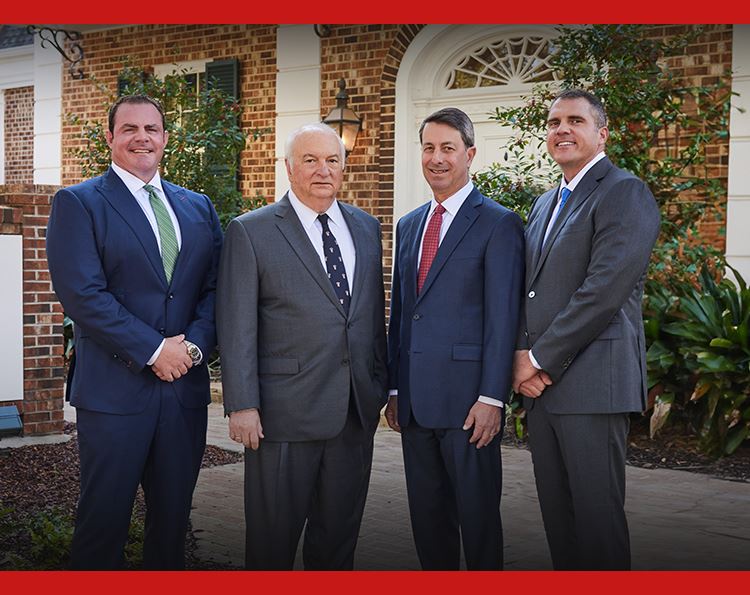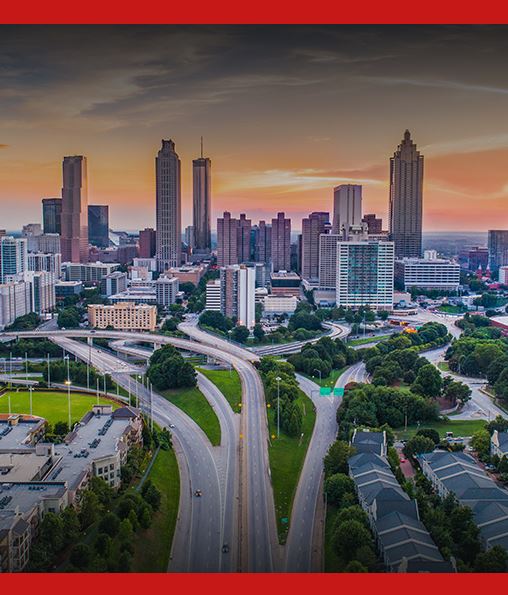
Atlanta Rear-End Accident Lawyer
Injured in a Rear-End Collision in Atlanta, GA?
If you've been involved in a rear-end collision in Atlanta, Georgia, you may be facing a host of challenges, from physical injuries and emotional distress to mounting medical bills and lost wages. At Cunningham Bounds, we understand the complex nature of rear-end collisions and the impact they can have on your life. Our team of experienced Atlanta rear-end collision lawyers is dedicated to helping victims seek justice and recover the compensation they deserve.
Here's why you should choose us to represent your interests:
- Proven Results: We have secured numerous multi-million dollar settlements and verdicts for our clients, demonstrating our commitment to obtaining maximum compensation.
- Expertise and Experience: Our attorneys have extensive experience in personal injury law, including rear-end collisions. We know how to build a strong case on your behalf.
- Personalized Approach: We treat each case as unique and provide personalized attention to ensure you receive the best possible outcome.
- Resources: We have the resources to investigate your accident thoroughly, including access to accident reconstruction experts, medical professionals, and other specialists.
Call (404) 609-1081 or contact us online today to request a free consultation.
How Common Are Rear-End Collisions?
Rear-end collisions are one of the most common types of car accidents in Atlanta, GA, and throughout the United States. These accidents typically occur when one vehicle crashes into the back of another. They can happen at any speed and in various traffic conditions. While rear-end collisions can result in minor fender-benders, they can also lead to severe injuries, especially when high speeds or distracted driving are involved.
What Causes Rear-End Collisions?
Several factors contribute to rear-end collisions in Atlanta, including:
- Distracted Driving: The use of mobile phones, eating, or other distractions behind the wheel can divert a driver's attention from the road, making it more likely for them to rear-end the vehicle in front.
- Tailgating: Following another vehicle too closely reduces a driver's reaction time, increasing the risk of a rear-end collision.
- Speeding: Excessive speed reduces the distance a driver needs to stop, making it difficult to avoid a collision if the vehicle in front suddenly slows down or stops.
- Impaired Driving: Driving under the influence of alcohol or drugs impairs a driver's judgment and reaction time, making rear-end collisions more likely.
- Weather Conditions: Rain, fog, or ice can reduce traction and visibility, making it challenging to stop in time to avoid a collision.
- Mechanical Failures: Brake failures or other mechanical issues can prevent a driver from stopping in time.
Common Injuries From Rear-End Collisions in GA
Rear-end collisions can lead to various injuries, some of which may not be immediately apparent. Common injuries include:
- Whiplash: Sudden acceleration or deceleration can cause neck and back injuries, commonly referred to as whiplash.
- Concussions and Traumatic Brain Injuries (TBI): Head injuries can occur when the head strikes the steering wheel, dashboard, or other parts of the vehicle.
- Broken Bones: The impact of a rear-end collision can result in fractures or broken bones in the arms, legs, or other body parts.
- Soft Tissue Injuries: Muscles, tendons, and ligaments can be stretched or torn, leading to painful soft tissue injuries.
- Spinal Cord Injuries: Severe rear-end collisions can cause spinal cord damage, leading to paralysis or other long-term disabilities.
- Psychological Trauma: The emotional toll of a rear-end collision can be significant, leading to anxiety, depression, or post-traumatic stress disorder (PTSD).
What To Do After Being Rear-Ended in Atlanta, GA
Being rear-ended can be a scary and confusing experience, especially in a busy city like Atlanta. Here's a breakdown of the steps you should take if you're involved in a rear-end collision in Atlanta:
At the Scene:
- Check for Injuries: The first priority is to ensure everyone's safety. Check yourself and your passengers for injuries. If someone is seriously hurt, call 911 immediately.
- Move to Safety: If your car is drivable and it's safe to do so, move it to the side of the road to avoid blocking traffic. Turn on your hazard lights.
- Call the Police: Even for minor accidents, call the police to file an accident report. This document will be crucial for insurance claims.
- Gather Information: Exchange contact information (name, phone number, and driver's license) with the other driver. Get their insurance information as well, including the company name and policy number.
- Document the Scene: Take pictures or videos of the damage to your car, the other car, and the overall accident scene. If possible, note the weather conditions and any visible traffic signs or signals.
- Avoid Discussing Fault: Don't admit fault or discuss the accident in detail with the other driver. Just exchange information and wait for the police.
After the Scene:
- Seek Medical Attention: Get a medical checkup, even if you feel okay. Adrenaline can mask injuries, and some injuries, like whiplash, may not show symptoms immediately.
- Report the Accident to Your Insurance: Contact your insurance company as soon as possible and report the accident. They will guide you through the claims process.
- Consider a Lawyer: Depending on the severity of the accident and the value of your claim, consulting with an Atlanta car accident lawyer might be beneficial. An attorney can help navigate the legal aspects of your case and ensure you receive fair compensation for your damages.
Who Is Liable For A Rear-End Collision in GA?
Georgia follows a fault-based system for car accidents, meaning the driver who caused the accident is financially responsible for the damages. In rear-end collisions, there's a presumption that the rear driver is liable. This is because Georgia law requires drivers to maintain a safe following distance to stop in case of emergencies.
However, there are exceptions to this rule. The driver who got rear-ended may be partially or fully responsible if they:
- Suddenly stopped or swerved unexpectedly.
- Drove erratically or recklessly.
- Had broken taillights or brake lights, making it impossible for the following driver to see them brake.
How Do I Prove Fault After A Rear-End Accident in GA?

